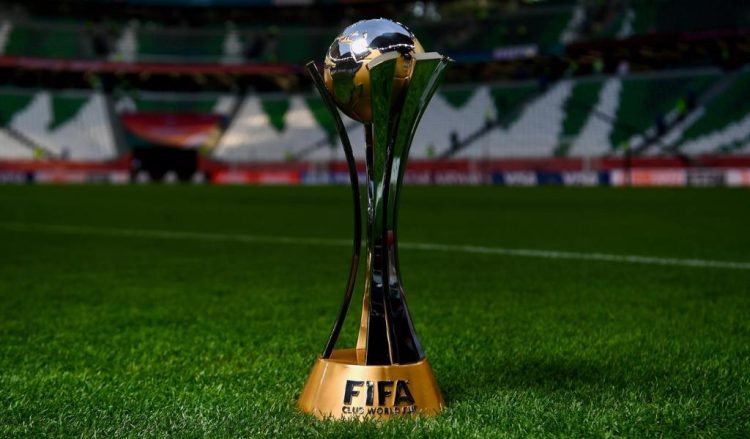Introduction
As the FIFA World Cup draws closer, the global excitement surrounding the tournament is intensifying. For every four-year cycle, the journey to the World Cup begins with a series of qualifying matches in which teams from all over the world battle for a coveted spot in the final competition. With the 2026 World Cup just around the corner, the qualification process has already begun, and the final qualification stages are expected to bring intense drama, suspense, and remarkable footballing performances.
In this article, we will focus on the World Cup Qualifying Finals, where the best teams will fight for the final tickets to North America (USA, Canada, and Mexico). Which teams are most likely to excel in these final stages and secure their place in the World Cup? We will analyze the strengths and weaknesses of several of the key contenders, assess their current form, and predict which teams are likely to stand out in this crucial phase.
Chapter 1: Historical Powerhouses – The Usual Suspects
There are always a few traditional footballing nations whose place in the World Cup finals seems almost guaranteed. Historically, these teams have consistently performed well in both qualification campaigns and the tournament itself, so it’s no surprise that they are always at the forefront of any World Cup discussion.
1. Brazil: The Eternal Powerhouse
With five World Cup titles to their name, Brazil is undoubtedly one of the most successful teams in World Cup history. Even as their golden generation begins to fade, Brazil continues to produce world-class talent year after year. The team’s attack is as deadly as ever, boasting players like Neymar, Vinícius Júnior, and Gabriel Jesus, who can turn any match into a goal-scoring spectacle.
In the qualifying stages, Brazil has historically been a force to be reckoned with. Their strength lies in their fluid attacking play, technical excellence, and depth of squad. With Tite at the helm, the team has shown tactical discipline alongside their flair, making them a well-rounded side. Despite challenges from other emerging teams in South America, Brazil’s consistency and depth give them a strong chance to excel in the final qualification rounds.
2. Germany: A Team of Tactical Discipline
Despite a few disappointing results in recent tournaments, Germany remains one of the most formidable footballing nations in the world. With four World Cup titles under their belt, their pedigree is undeniable. Germany’s strength lies in their highly structured teamwork, tactical intelligence, and consistency. They also have a young, talented squad with players like Joshua Kimmich, Kai Havertz, and Jamal Musiala, who bring both energy and creativity to the team.
Germany has a history of overcoming challenges in the qualification stages, and their solid performance in previous World Cup qualifications suggests they will not falter in the final rounds. Head coach Hansi Flick, known for his ability to adapt and implement high-pressing football, has revitalized the team. With a combination of experienced leaders like Manuel Neuer and Thomas Müller, alongside youthful players eager to prove themselves, Germany’s qualification chances remain high.
3. Argentina: Messi’s Last Dance?
Argentina, with its storied football history and two World Cup titles, is always a contender on the global stage. However, in recent years, they have faced significant pressure to live up to expectations, especially in the post-Maradona era. The resurgence of Lionel Messi, particularly after winning the 2021 Copa América, has reignited their chances of dominating international football. The partnership between Messi and other key players like Ángel Di María, Lautaro Martínez, and Rodrigo De Paul has been a driving force behind Argentina’s impressive performances in international competitions.
In the World Cup qualification stages, Argentina’s defensive solidity, led by players like Emiliano Martínez in goal and Cristian Romero in defense, has been complemented by a potent attack. With Lionel Scaloni guiding the team, Argentina has found a balance between defense and attack that makes them a strong contender in any competition.
If this is indeed Messi’s final World Cup, the team will be even more motivated to give him the farewell he deserves. As the qualification rounds heat up, Argentina’s talent, experience, and team cohesion should make them one of the favorites to qualify for the 2026 tournament.
Chapter 2: Rising Powers – The New Wave of Contenders
While the usual suspects remain strong, the last few World Cup cycles have witnessed a wave of emerging footballing nations challenging the established order. These teams are showing that they are capable of competing at the highest level, and they should not be underestimated.
1. France: World Champions Looking to Defend Their Crown
After winning the 2018 World Cup, France cemented its place among the elite teams in international football. With a squad brimming with talent, including players like Kylian Mbappé, Antoine Griezmann, Paul Pogba, and N’Golo Kanté, France has one of the deepest teams in world football. Didier Deschamps, the manager who led them to victory in 2018, has built a well-balanced team that is capable of both fluid attacking play and disciplined defending.
In terms of the qualification campaign, France’s pedigree and consistency mean they are likely to progress easily through the final stages. The only potential issue could be the depth of their squad, as some key players like Paul Pogba and Raphaël Varane may face injury concerns, but with the likes of Eduardo Camavinga, Aurélien Tchouaméni, and Kylian Mbappé leading the way, France remains a top contender.
2. Spain: A Tactical Revolution Under Luis Enrique
The Spanish national team may have been in a transitional period after their golden era of dominance (which saw them win the 2010 World Cup and two UEFA European Championships), but under Luis Enrique, they have started to show a new tactical identity. Spain has always been known for its fluid passing game, and Enrique has rejuvenated the squad with youthful players like Pedri, Gavi, and Ansu Fati leading the charge.
In the qualification rounds, Spain has typically performed well, with their trademark possession-based football and pressing style giving them an edge. The team may lack the same star power as their previous iteration, but their commitment to playing an intelligent, attacking brand of football could see them emerge as a top contender in the final qualification rounds.
3. Belgium: The Golden Generation’s Last Shot
Belgium’s golden generation, featuring stars like Kevin De Bruyne, Romelu Lukaku, Thibaut Courtois, and Eden Hazard, has long been regarded as one of the most talented squads in world football. However, the team has yet to deliver on its potential in major tournaments. Despite their aging key players, Belgium’s quality and experience remain undoubted, and they will be looking to capitalize on what could be their last opportunity to win a major tournament with this group.
In the World Cup qualifiers, Belgium has remained highly competitive, and with Roberto Martínez still at the helm, they are likely to put in a strong performance. Belgium’s attack remains one of the best in the world, and with a solid defense anchored by Jan Vertonghen and Toby Alderweireld, they have all the ingredients to progress through the qualification stages.

Chapter 3: Dark Horses – Teams That Could Surprise the World
While the traditional giants and rising powers dominate the conversation, there are always a few dark horses that could surprise everyone in the World Cup qualifying stages. These teams may not have the star power of the top nations, but they often have the collective spirit, tactical nous, and determination to cause upsets.
1. Netherlands: A Team Rebuilding After Heartbreak
After missing out on the 2018 World Cup, the Netherlands has made an impressive return to form under Louis van Gaal. With a new generation of talented players like Frenkie de Jong, Memphis Depay, and Matthijs de Ligt, the Dutch team is once again a force to be reckoned with. Despite some inconsistencies, the Netherlands’ organizational discipline and attacking flair make them a team that could surprise their competitors and claim a place in the 2026 World Cup.
2. Portugal: A Mix of Youth and Experience
With Cristiano Ronaldo still at the helm, Portugal remains a formidable force. The presence of the legendary forward is complemented by a new wave of talent, including Bruno Fernandes, João Félix, and Rúben Dias. Portugal’s blend of experienced leaders and young, hungry players could make them a dangerous side in the qualification rounds.
Conclusion: The Road to 2026 – Who Will Rise to the Occasion?
As the final World Cup qualification rounds approach, the competition will be fierce, with each nation vying for a coveted place in the 2026 tournament. While Brazil, Germany, Argentina, and other traditional powerhouses are expected to remain strong, new and emerging teams like France, Spain, Belgium, and the Netherlands could steal the spotlight and make their mark on the world stage.
The unpredictability of international football, coupled with the ever-changing dynamics of teams and players, means that the final qualification stages will be as thrilling and dramatic as ever. Ultimately, the teams that rise to the occasion, manage their resources well, and remain consistent throughout the qualification process will have the best chance to qualify for the 2026 World Cup in North America.
Only time will tell which teams will emerge victorious and secure their place among the world’s elite in the next edition of the world’s most prestigious football competition.






























Discussion about this post